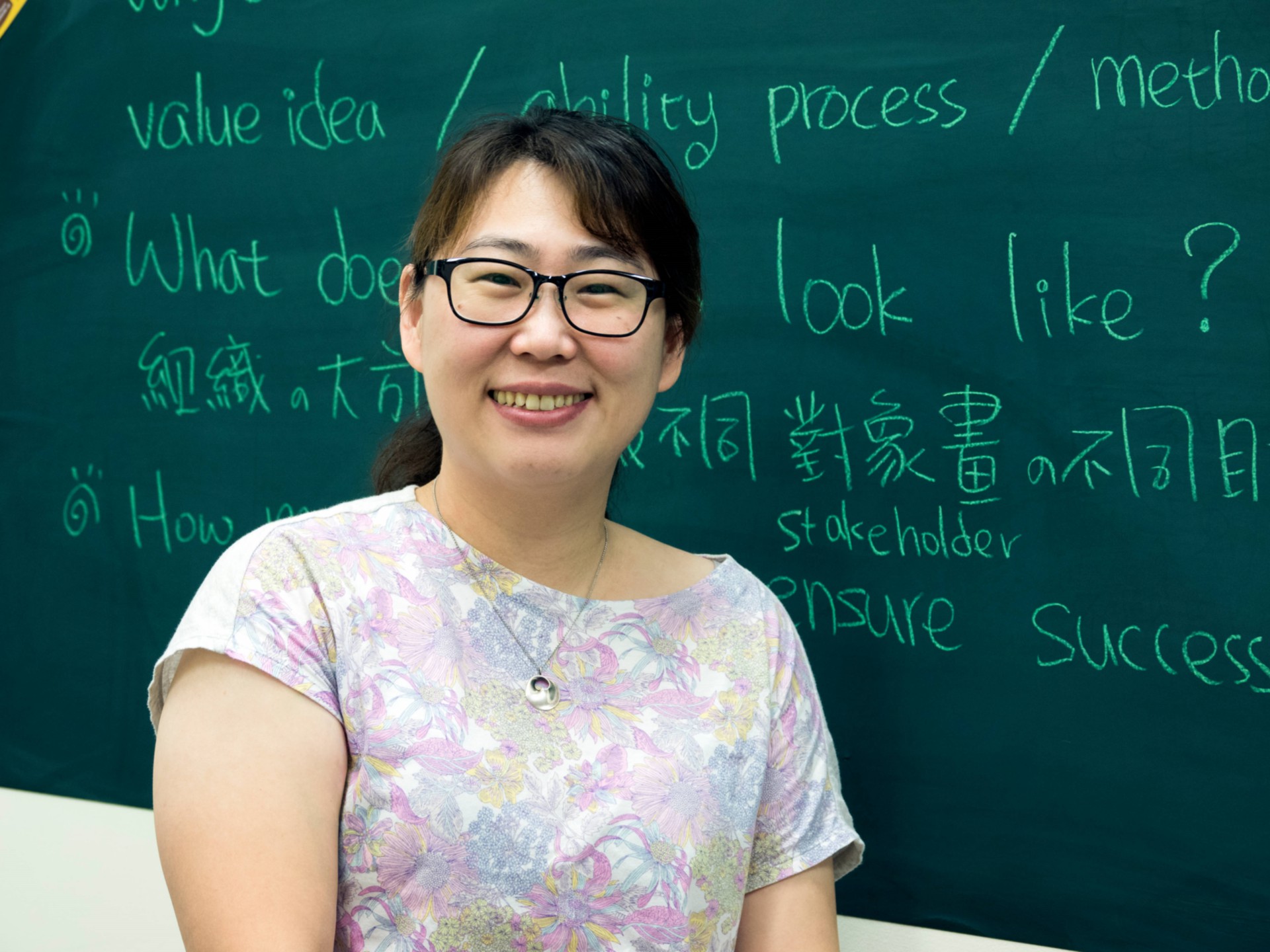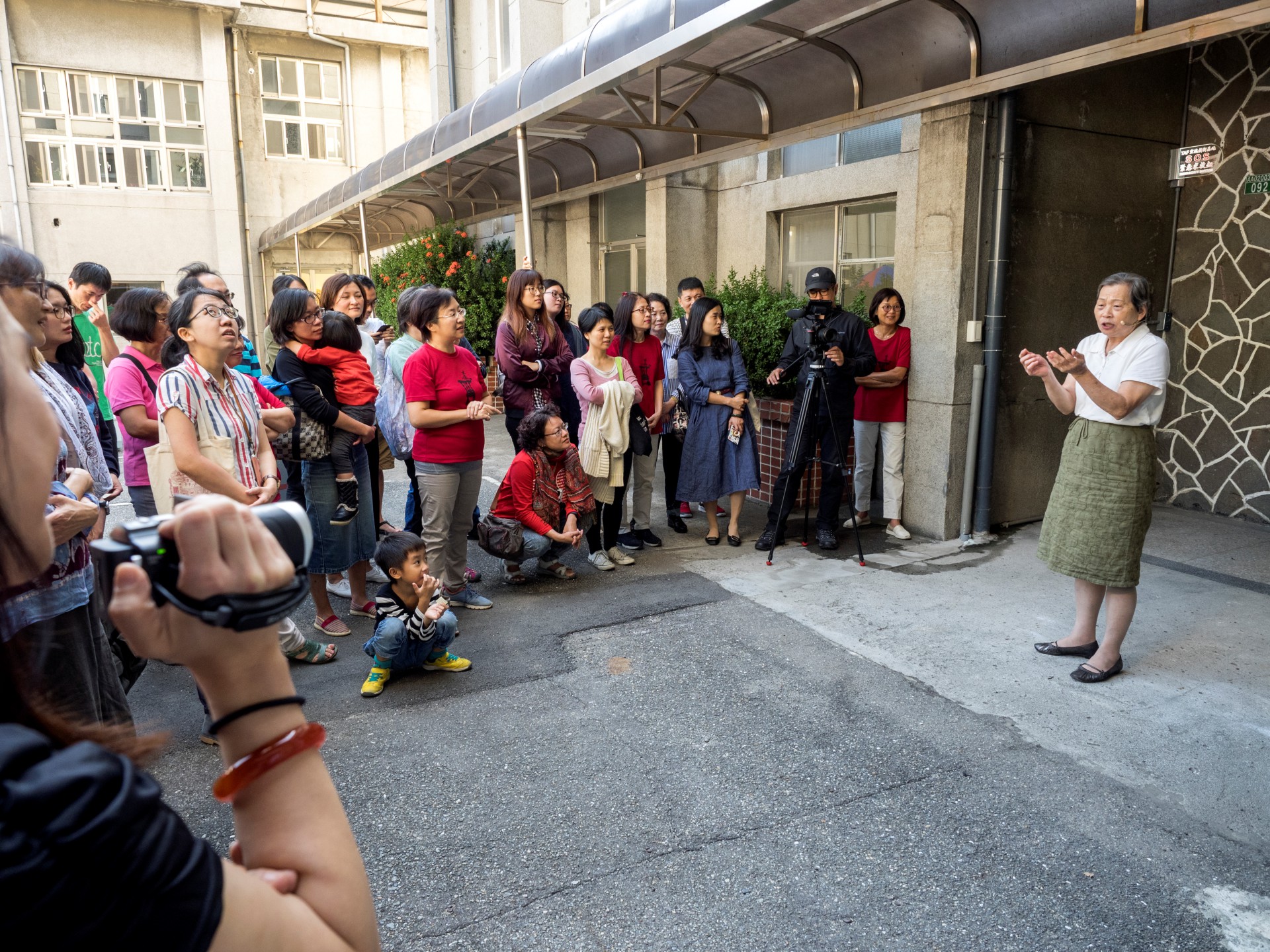2014年由資深應用戲劇與公民教育工作者一起成立的思樂樂劇場,是因太陽花學運後感到臺灣教育制度缺乏公民意識的養成與對話空間,決定活用戲劇演出作為互動方法,激發青年學生對世界公民議題的關注與理解,進而創造了劇團成立的契機。思樂樂劇場非常注重前期的共同討論,劇本皆以集體創作方式完成,演教員也會參與前期研究與發想,他們透過互動的方式討論社會議題、組織關係、結構性問題,過程邀請觀眾一起參與,且在演出流程中可依實際狀況調整演出長度。特別選在世界地球日4月22號成立,思樂樂劇團強調思考(think)、感覺(feel)、行動(move),有快樂思考與眾樂樂的意涵。
教育劇場(Theatre in Education, TIE)或稱教習劇場起源於英國,在臺灣已有20年發展軌跡,結合戲劇形式與教育目標,針對要討論的議題,來引發參與者的情感經驗。思樂樂劇場以教育劇場為方法,將戲劇應用在公民教育的推動,強調學生與演教員的互動過程。演教員具備劇場技能與教學經驗,劇團以互動式戲劇、情境模擬與行動方案與高中、高職學生談論社會與公民議題。學生透過角色扮演,可以參與演出,也同時回應劇情。教育劇場擺脫過往說教式的教育傳達,不批判、沒有標準答案,而是以情境模擬與行動方案作為議題回應的方式,並創造學生可以且安全表達的情境空間,讓學生在參與、體驗、回應討論的過程中引發自我思考與個人情感經驗的連結,達成教育意義。
思樂樂劇場2018年5月因「藝啟學」計畫進駐南港區修德國小的至真樓。「藝啟學」是臺北市政府文化局與臺北市政府教育局合辦的計畫,提供學校空間給藝文團體排練或辦公用,並收取租金作為管理費。此計畫試圖透過藝術進駐校園的共伴形式,以達深耕藝術教育之目的,進駐團隊也以各自擅長的方式提供在校學生欣賞與接觸多元藝術的機會。
 2014年由資深應用戲劇與公民教育工作者一起成立的思樂樂劇場,當年的太陽花學運是劇團成立的契機。圖為思樂樂劇場執行長曾令羚。圖/許斌攝影
2014年由資深應用戲劇與公民教育工作者一起成立的思樂樂劇場,當年的太陽花學運是劇團成立的契機。圖為思樂樂劇場執行長曾令羚。圖/許斌攝影
劇團的第一號作品《蚵田啟示錄》(2014)談永續發展,劇情設定以台西縣石化工廠因應全球化競爭將擴建廠區為背景,探問當經濟發展與環境保護兩者發生衝突時,該怎麼做?工廠雖然帶來地方收入,卻對地方養殖業與居民健康造成傷害,因而三位於村落長大的好友在石化擴廠的說明會相遇,以各自的立場與觀點思考永續議題。思樂樂劇場在演出過程中透過戲劇互動策略,讓學生換位思考與提出決策方案,劇做行進包括引入階段(破冰遊戲與石化產業認識)、體驗階段(演出過程中與學生提問做互動、角色扮演、投票決策)、反思階段(討論與填寫問卷),以及後續教師可以帶領學生做相關議題討論的延伸教案。
《蚵田啟示錄》從2014年開始在新竹高中、新竹女中與新竹實驗中學巡演四場。2015年版再次到新竹高中、新竹女中、北一女、臺北市中正高中、師大附中、內壢高中等學校演出十場。2015年在新竹女中與彰化女中舉辦公民教師研習——戲劇教育工作坊。2016年版則在全臺灣多所高中、社區大學持續演出,並在臺北舉辦「世界公民教育互動教案研發工作坊——以《蚵田啟示錄》為例」召募公民老師與表演藝術老師進行培訓。三年內演出了20場。
第二號作品《ㄎㄧㄤ!青春變奏曲》(2016)則緣起於「臺灣Smashed教育劇場計畫」,以正值青春期學生在成長過程中可能會遭遇的議題,如校園的霸凌問題、兩性關係如何相處與建立、不當的物質濫用(菸、酒、毒品)等,討論青少年的自我認同。
《ㄎㄧㄤ!青春變奏曲》從2016年開始於臺北市、新北市與高雄市15所高中職進行了30場演出,也舉辦三場教師培訓工作坊。2017年演出20場,2018年演出30場,2019年還會再演出30場。同樣也有相關議題的教案延伸。在思樂樂劇場的臉書上,也將《蚵田啟示錄》、《ㄎㄧㄤ!青春變奏曲》兩件作品的教案手冊公開分享,以利教師或教育工作者應用。
除了在學校持續推動的教育劇場,思樂樂劇場團員各自也長期參與社區,過程中持續不斷反思與探尋在社區營造中的劇場可以如何做?藝術介入社區會帶來什麼影響?以持續進行第三年的「蟾蜍山紀錄劇場 前期創作計畫」為例,曾在2016年9月臺北藝術節「遺忘的故事——紀錄劇場工作坊」以一週的密集培訓最後進行成果發表,談在地居民居住正義的《問事.蟾蜍閣》;以及為期八週的「蟾蜍山活化歷史故事班」,於2016年11月7日和14日分別以「銘傳國小的小朋友來蟾蜍山聽故事」和「蟾蜍山奶奶們,帶著故事走入銘傳國小」兩種方式讓在地長者們分享自己的生命故事給鄰近的銘傳國小學生。透過持續的資料收集、訪談與工作坊等田野調查,2017年12月在蟾蜍山傾聽居民故事,以一人一故事劇場演出了《山城故事》。延續蟾蜍山還在持續進行的社區計畫,思樂樂劇場與團員去年在空總臺灣當代文化實驗場的「戲遊銀髮:劇做老年田野方法論壇」論壇中,將這些田野資料轉化成一部分小型演出的展演形式。
 過往擔任車掌小姐的長者,在2018年的「戲遊銀髮:劇做老年田野方法論壇」中演出,由曾令羚安排不同長者說故事的時間與地點,參與者隨著演出在空間中移動。圖/許斌攝影
過往擔任車掌小姐的長者,在2018年的「戲遊銀髮:劇做老年田野方法論壇」中演出,由曾令羚安排不同長者說故事的時間與地點,參與者隨著演出在空間中移動。圖/許斌攝影
2018年11月的這場展演論壇是由陳懷萱帶領,透過互動體驗的設計,以中世紀馬車棚劇場輪流巡演,每個劇團呈現約20到30分鐘演出,主軸放在劇團如何展現各自在劇場中的田野。思樂樂劇場以兩位居住在蟾蜍山,過往擔任車掌小姐的長者曾媽與葉媽來說自己年輕時候的故事,劇團執行長曾令羚在過程中會控制長者說故事的時間。演出設定三個地點,故事在站點展開,門口外一站、入口內一站、空間裡頭再一站。首先參與者會拿到兩張車票,一起移動到門外第一站,兩姐妹輪流講述自己的身分,她們如何當上車掌小姐,人生中印象深刻的事。接著觀眾移動進入室內入口驗票搭車,第二站姊姊講述自己的戀愛,客家女孩與外省公車司機如何成家的故事。第三站妹妹講述自己作為童養媳卻選擇自由戀愛,最後與同事也是外省公車司機結婚的故事。
思樂樂劇場團員長期與素人工作,許多時間都在與社區民眾建立信任關係。在綜合座談中也拋出疑問,當劇場工作者進入社區,創作出的作品究竟對誰有意義,是劇場工作者、居民,還是社區?思樂樂劇場選擇讓長者說自己的故事,談生命中的移動路徑,劇團的工作是將故事做剪裁,抓出故事主軸。曾令羚也提到平常葉媽在蟾蜍山是無人不知的人物,來到空總演出,對於不熟悉的空間,面對不同的對象,難免有些緊張,與在自己熟悉的地方說故事,感覺相當不同。2019年劇團可能會推出「蟾蜍山紀錄劇場」,並持續與社區共同工作,現正在規劃與討論展演形式。